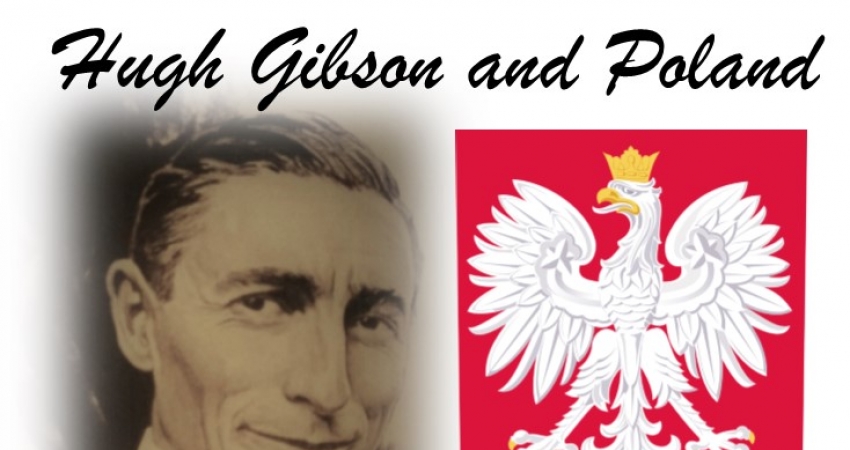
by Vivian Reed, part 8.
(Continuing the story of Hugh Gibson’s relationship with Poles during the First World War, when he was a ranking US diplomat based in Paris but traveling throughout both Western and Eastern Europe. The quotation in italics is from An American in Europe at War and Peace, edited by Vivian Reed and Jochen Böhler, DeGruyter, 2020.)
The following selection gives evidence of the early and clandestine peace talks Gibson was involved in during June and July 1918 in Switzerland, and Poland’s place in the discussion.
Paris. July 16, 1918
[Robert] Di Fiori, a confidential agent of Ludendorff, came to Switzerland a few weeks ago to see Professor Herron. …
De Fiori and Professor Foerster, Professor of History at the University of Munich, laid the matter before the Crown Prince Rupprecht of Bavaria, who is something of a liberal. Herron’s very able statement of America’s military effort impressed the Crown Prince, who said that if these things were true as they seemed to be, there was not a chance of Germany winning the war, and every probability that she would be beaten.
At his insistence, a meeting of the Bavarian Cabinet was held with the King as presiding officer. … Within ten days after his return to Munich, De Fiori was sent back to Geneva to acquaint Herron with these terms and ask him whether in his opinion they would form an acceptable basis for discussion. The Bavarians said they did not wish to run the risk of being snubbed and put in a difficult position with the rest of Germany; … They said that these were what they considered “middle terms” and that any points were open to discussion and concession; if his opinion was favorable they would endeavor to gather together the small states of Germany and bring pressure to bear upon Prussia with a view to forcing a serious peace offer.
The terms included the restoration of Belgium, but not restitution, Germany guarding certain indefinite rights of navigation on the Escaut [Schedt River] and the mouths of the Rhine.
The evacuation of northern France.
The granting of autonomy to Alsace-Lorraine, with allegiance to the Empire.
Free trade to be established so that these colonies could turn to either France or Germany as their economical or commercial interests may dictate.
Poland to be established as an independent state, not embracing Galicia or the Province of Kulm. Poland to have access to the sea through Danzig through special arrangements to be made with a view to facilitating her commerce.
The treating of Brest-Litovsk and Bucharest to be open to reconsideration.
Strangely enough nothing was said about the freedom of the seas; and nothing about Italy.
De Fiori was told that any conditions which did not consider the vital subjects of Russia and the east would be unthinkable. …
Notes:
Robert De Fiori (1854-1933) was an Austro-Hungarian journalist who worked with Bavarian authorities in 1918. He was introduced to Stovall [US Ambassador to Switzerland] by Robert Lansing [US Secretary of State] in a telegram dated Jun 26, 1918. Gibson was communicating with Washington through the Embassy in Bern at that time. De Fiori was described as “one of [Erich] Ludendorff’s most intelligent agents” who could travel freely across frontiers. He was tasked to explore the possibility of peace before the absolute defeat of Germany.
George D. Herron (1862-1925) was an American clergyman and anti-militarist who broke with his Socialist Party of America to provide the US and British governments with information gathered via his position as a professor at the University of Geneva.
Friedrick Wilhelm Foerster (1869-1966) was a German professor of philosophy and moral education at the University of Zurich. As an ardent pacifist, his views were unpopular with many powerful Germans. In November 1918, he was named as ambassador of the Munich Soviet Republic to Bern.
Rupprecht, Crown Prince of Bavaria (1869-1955) was the last heir apparent to the Bavarian throne and the German military leader who most directly faced the British Expeditionary Force. He was one of the first of the German high command to realize the war was lost and make moves toward peace. He opposed a “scorched earth” policy but was forced to resign on November 11, 1918 – Armistice Day.
Please look for the next post when Gibson describes an informative meeting with Horodyski. Until then, stay well and thrive!
Vivian